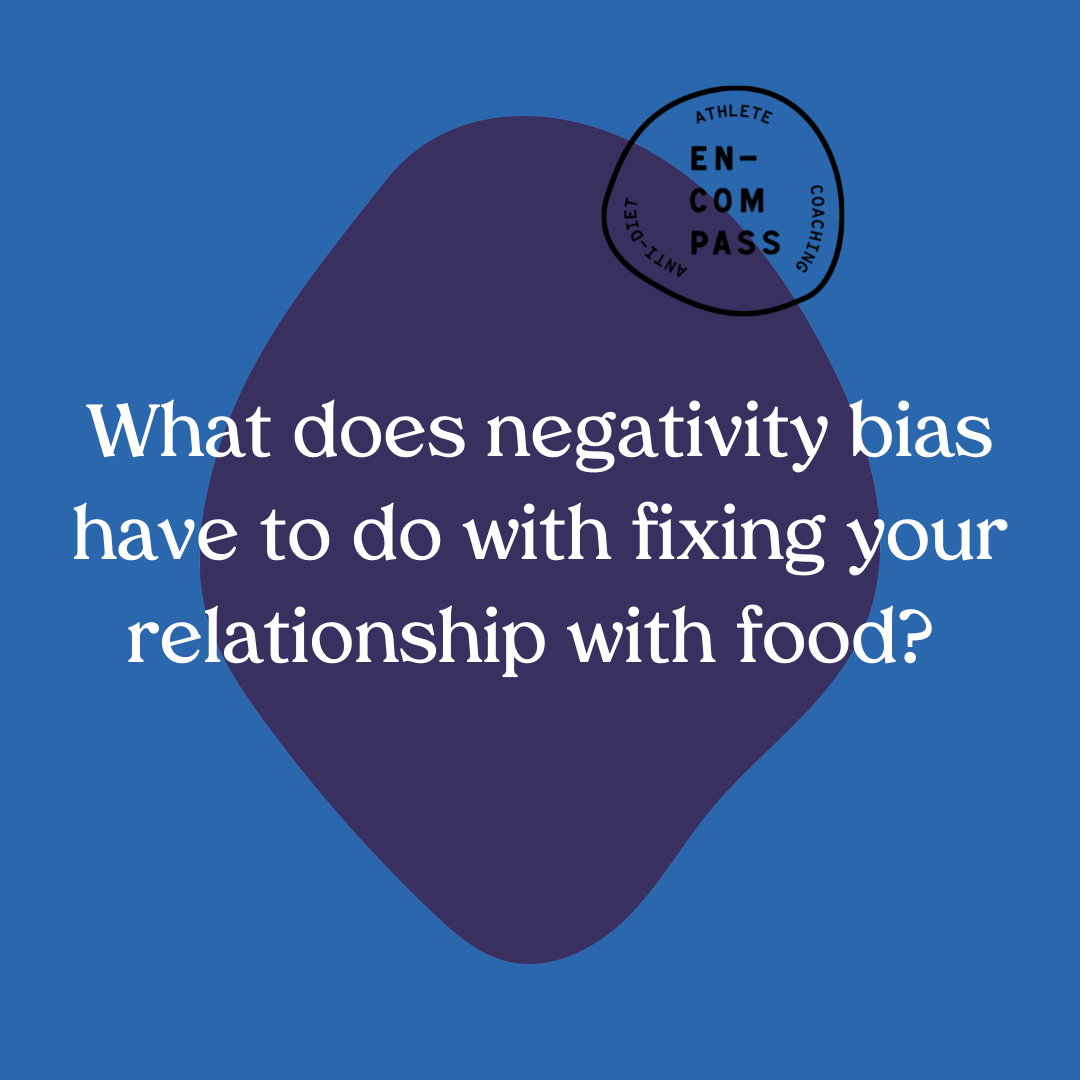How to Silence Your Inner (Food) Critic
If you're working on repairing your relationship with food you might be familiar with your inner critic. Your inner critic might sound like the following phrases; "really, another snack?" or "eating sugar will make you fat” or my personal favorite, “processed foods are terrible for your health.”
In total, your inner critic doesn't like nuance because in that state of grey it cannot survive. Your inner critic thrives on black-and-white thinking because there is a clear "right" and "wrong" outcome for every situation. The answer? Work to cultivate the space of grey. This is particularly challenging because most people find a lot of comfort in the space of black and white as it enables a false sense of control. The work to be done here is to really dig deep and decide for yourself…is this helping my overall well-being? Or does all-or-nothing thinking diminish my capacity to make nourishing choices?
Let's first unpack what your inner critic sounds like.
Do many of your thoughts around food feel all-or-nothing?
Does your inner critic ask that you make allowances with food, that you can only eat "x" food if you've burned a certain amount of calories?
Does your inner critic magically quiet if you’ve exercised a lot?
Do you feel guilt, or perhaps pride after choosing certain foods?
Is there morality attached to making certain food choices?
As challenging as it might feel to confront your inner critic, the next time you eat try to pay attention to the little voice that's present in your mind. In order to untangle yourself from the judgement of your inner critic, we need to figure out what it's saying first.
Now that you know what your inner critic sounds like, it's time to tell it to STFU. On a piece of paper, write out all the phrases you hear from your inner critic. Slowly, as you cross each off your list, replace that statement with a positive or neutral counter-statement.
Let's try one together.
From: Pizza is unhealthy.
To: Pizza usually means a group dinner, and group dinners mean spending time with friends, bonding usually over something unrelated to food.
Let's try another one.
From: I had a cookie, so I'm going to eat "junk" for the rest of the day.
To: Just because I had a cookie doesn't mean I can't continue to nourish my body with other nutritious foods.
Let's try one more.
From: You should only buy peanut butter without sugar or palm oil.
To: If peanut butter with sugar tastes better, a little added sugar is nominal through the rest of the day. It's also a little cheaper and easier to stir.
When this process becomes challenging - let's say you're confronted with your inner critic in the midst of a social setting, what do you? Remind yourself that repairing your relationship with food takes time, and energy. It's okay for it to be hard, but give yourself a reminder that reclaiming your relationship with food is worth it. Cultivating positive eating experiences is the goal here, and health isn’t defined by any one measure! Learning to make decisions about food (and health) is about utilizing a strength-based approach. Positive health comes from making choices that are empowering, not diminishing. I personally feel the most healthy when I’m able to make decisions about food that satisfy both my physical and mental needs and that often looks like ignoring mainstream “rules” around food and following my intuition.
Need more support? Check out THIS podcast episode unpacking the principles of Intuitive Eating with helpful takeaways.
Feeling like you need more individualized support? Use the button below to book a free 30 minute discovery call to chat about intuitive eating.

